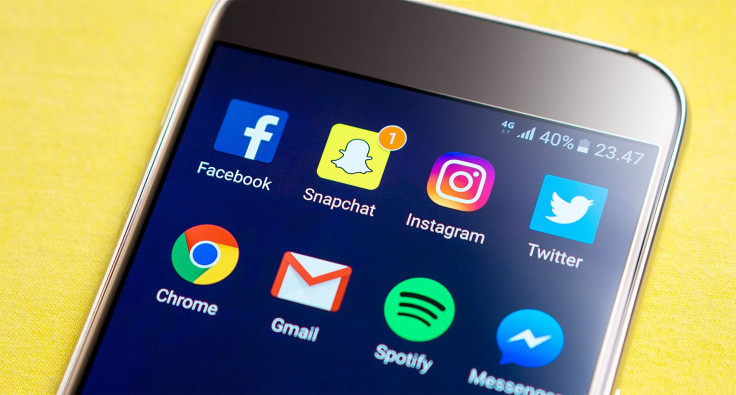Why Being Popular On Social Media Is Linked To Happiness

It’s often thought that people with loads of friends have more enjoyable lives, but a new study contributes some evidence that popular people really are happier, though the study didn't define "happy." Researchers found that people with more Twitter followers, or friends, were actually more content IRL.
Conducted by computer scientists at Indiana University, the research supports the notion of FOMO, or "fear of missing out," and that everyone else around you is actually having more fun. For the study, researchers selected 4.8 million Twitter users randomly, which was culled down to 102,000 people after focusing only on those who followed each other. Then, they focused on people who had at least 15 friends and analyzed their tweets for sentiment, assessing whether musings were positive or negative. More than 39,000 Twitter uses were included in the final sample. People who had more positive posts were deemed "happy."
The team estimates that about 94.3 percent of Twitter users had fewer friends than their connections. On average, 58.5 percent weren’t as happy as their Twitter friends. “In other words, a majority of users may feel that they’re less popular than their friends on average,” lead study author Johan Bollen, associate professor in the IU School of Informatics and Computing, said in a statement. “They may also have the impression that they’re less happy than their friends on average.”
"This analysis contributes to a growing body of evidence that social media may be harmful to users who 'overindulge' in these services since it's nearly impossible to escape negative comparisons to their friends' popularity and happiness," said Bollen.
Multiple studies have shown that social media can actually make us unhappy. Last year, researchers at the University of Copenhagen determined that scrolling through social media accounts can cause people to become envious, particularly when you lurk rather than interact with others. The study included more than 1,000 people and the study authors warned that people should regulate the amount of time spent on social media, reports BBC.
This latest study found that people who use social media are in one of two categories: happier users with happier friends and unhappier users with unhappier friends. Additionally, unhappy users were more likely to be less happy than their unhappy friends, which researchers believe indicate they are affected by the mood of their connections.
"Overall, this study finds social media users may experience higher levels of social dissatisfaction and unhappiness due to negative comparison between their and their friends' happiness and popularity," Bollen said. "Happy social media users may think their friends are more popular and slightly happier than they are -- and unhappy social media users will likely have unhappy friends who still seem happier and more popular than they are on average."
Copyright Medical Daily News Service. All rights reserved.



















